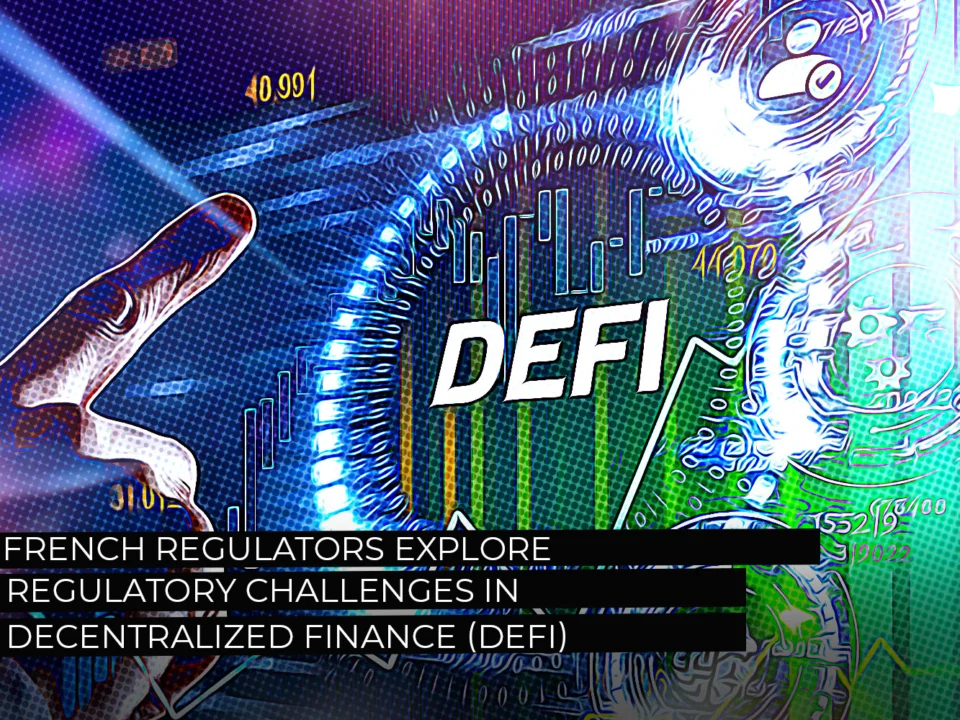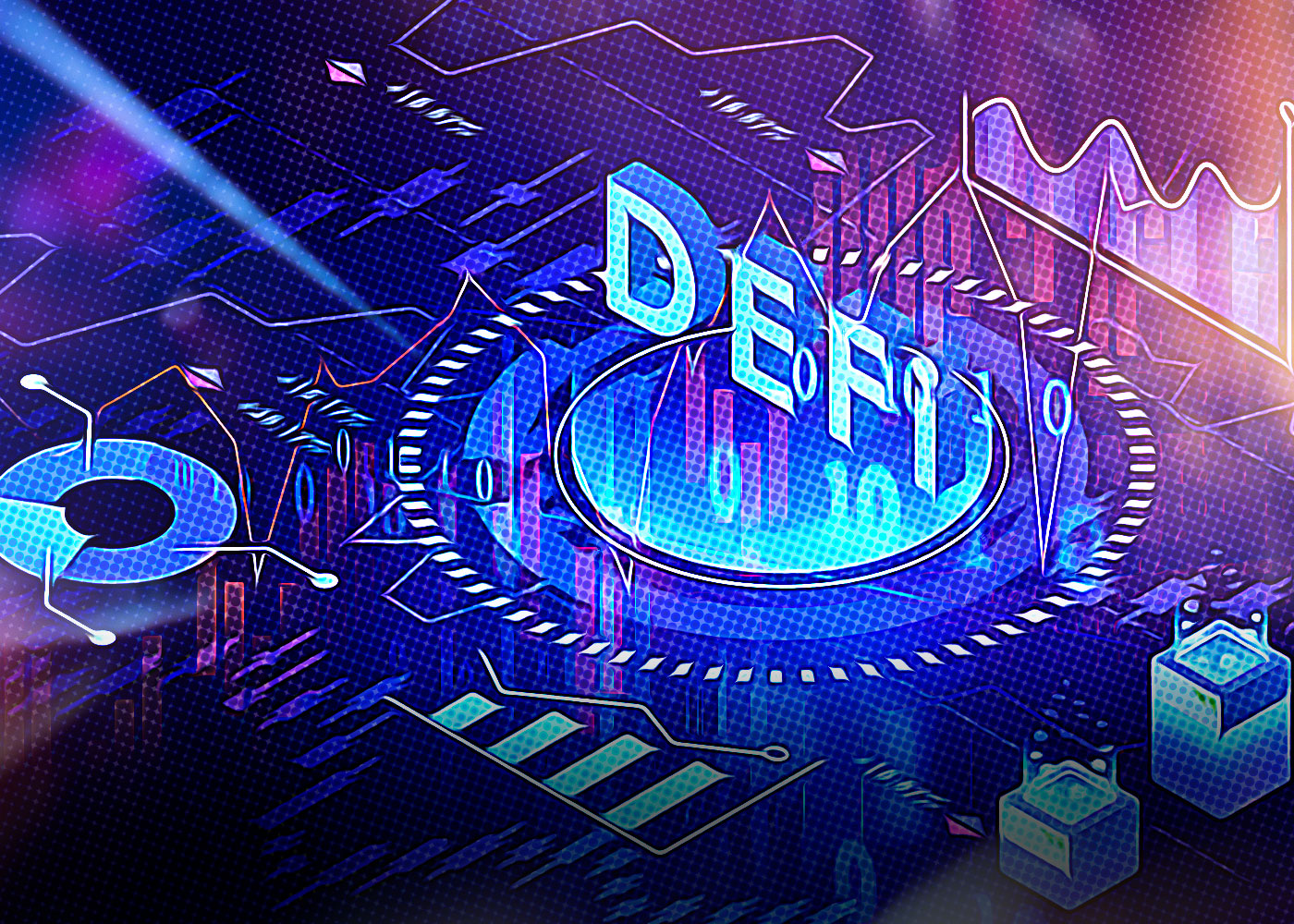Decentralized Finance, or DeFi, is transforming how financial services operate by eliminating traditional intermediaries. French regulators are keenly observing this burgeoning sector, striving to balance innovation with regulatory oversight. By understanding DeFi’s unique characteristics, these regulators aim to address potential risks and challenges inherent in the system. This blog delves into the current approach of French regulators towards DeFi and explores the hurdles they face in ensuring market integrity and consumer protection.
Understanding the Unique Characteristics of Decentralized Finance

Decentralized Finance, commonly known as DeFi, represents a paradigm shift in the financial sector. Unlike traditional financial systems, DeFi eliminates intermediaries like banks and brokers. Instead, it relies on blockchain technology and smart contracts to provide financial services.
Key Characteristics of DeFi:
- Decentralization: DeFi platforms operate on public blockchains, ensuring they are not controlled by a single entity. This decentralization enhances transparency and reduces the risk of fraud.
- Accessibility: Anyone with an internet connection and a compatible digital wallet can access DeFi services. This opens up financial opportunities to underserved populations.
- Transparency: All transactions on DeFi platforms are recorded on public ledgers, which allows for greater transparency compared to traditional financial systems.
- Smart Contracts: DeFi utilizes smart contracts to automate and enforce agreements, ensuring reliability without the need for intermediaries.
Comparison with Traditional Finance:
| Aspect | Traditional Finance | DeFi |
|---|---|---|
| Control | Centralized | Decentralized |
| Accessibility | Limited (Regulated Access) | Open to anyone |
| Transparency | Limited | High |
| Intermediaries | Required | Not required (Smart Contracts) |
These characteristics make DeFi a promising yet complex sector, inviting French regulators to explore the balance between innovation and regulation.
French Regulators’ Current Approach to DeFi
French regulators are keenly observing the burgeoning DeFi sector. They intend to maintain a balanced approach that fosters innovation while ensuring market stability. Currently, their strategy involves several key actions:
- Monitoring Developments: French authorities are actively monitoring DeFi platforms to understand how they operate and identify potential risks.
- Stakeholder Engagement: Regulators engage with industry stakeholders, including DeFi developers and traditional financial institutions, to gather insights and foster a collaborative regulatory environment.
- Regulatory Sandboxes: France has implemented regulatory sandboxes allowing DeFi projects to operate in a controlled environment. This helps in assessing risks without stifling innovation.
- Consumer Protection: Ensuring user safety remains a priority. Authorities are exploring ways to enhance consumer protection measures within the DeFi ecosystem.
Regulation Strategies Comparison:
| Aspect | Traditional Finance | DeFi |
|---|---|---|
| Regulatory Framework | Established and comprehensive | Evolving and fragmented |
| Consumer Protection | Strict and well-defined | Emerging and under development |
| Innovation Facilitation | Moderate | High through regulatory sandboxes |
Thus, French regulators adopt a proactive yet cautious approach to effectively integrate DeFi into the financial system while safeguarding stakeholders.
Potential Risks and Regulatory Challenges in the DeFi Sector
Decentralized Finance (DeFi) offers significant financial innovation, yet it comes with a multitude of risks and regulatory challenges. French regulators focus on these issues to ensure a secure and compliant financial environment.
Key Risks in DeFi:
- Smart Contract Vulnerabilities: DeFi relies on smart contracts, which are prone to bugs and exploits.
- Lack of Consumer Protection: Unlike traditional finance, DeFi lacks robust consumer protection mechanisms.
- Market Volatility: The DeFi sector is highly volatile, posing significant financial risks to investors.
- Liquidity Risks: Liquidity in DeFi platforms may not be sufficient to handle large, sudden withdrawals.
Regulatory Challenges:
- Anonymity and Fraud Prevention: DeFi’s decentralized nature complicates identity verification and anti-fraud measures.
- Jurisdictional Issues: DeFi operates across borders, challenging national regulators to enforce compliance.
- Financial Stability: Rapid growth in DeFi could pose systemic risks to financial stability.
Comparison: Traditional Finance vs. DeFi
| Aspect | Traditional Finance | DeFi |
|---|---|---|
| Regulation | Highly regulated | Lightly regulated |
| Consumer Protection | Strong protections | Limited protections |
| Market Volatility | Relatively stable | Highly volatile |
| Operational Transparency | Opaque processes | Transparent processes |
In conclusion, while DeFi holds transformative potential, addressing its risks and regulatory challenges is crucial for its sustainable growth.
Frequently Asked Questions
What is Decentralized Finance (DeFi)?
Decentralized Finance, commonly referred to as DeFi, is a blockchain-based form of finance that does not rely on traditional financial intermediaries such as banks, brokers, or exchanges. Instead, it utilizes smart contracts on blockchain platforms, primarily Ethereum, to facilitate financial transactions. DeFi aims to offer more accessible, transparent, and efficient financial services by eliminating the need for centralized entities.
Why are French regulators interested in DeFi?
French regulators are interested in DeFi due to its rapid growth and the potential regulatory challenges it presents. As DeFi platforms can operate across borders and outside traditional banking regulations, there are significant concerns regarding consumer protection, financial stability, and the prevention of illicit activities. French regulators are exploring how to oversee these platforms effectively to ensure they comply with existing financial laws and regulations while promoting innovation.
What are the primary regulatory challenges associated with DeFi?
The primary regulatory challenges associated with DeFi include ensuring compliance with anti-money laundering (AML) and counter-terrorist financing (CTF) regulations, safeguarding consumer assets, maintaining financial stability, and creating an appropriate framework for taxation. Moreover, the decentralized nature of DeFi platforms makes it difficult to pinpoint accountable parties, enforce regulations, and monitor transactions in real-time—a fundamental departure from traditional centralized financial systems.
How might future regulations impact the DeFi space in France?
Future regulations could significantly impact the DeFi space in France by setting new compliance standards and legal requirements for decentralized platforms. This could mean stricter identity verification processes, more rigorous reporting obligations, and potentially new licensing requirements for DeFi service providers. While these regulations might increase operational costs for DeFi platforms, they could also enhance user trust and mainstream acceptance, thus fostering the sector’s growth in a more secure and regulated environment.







